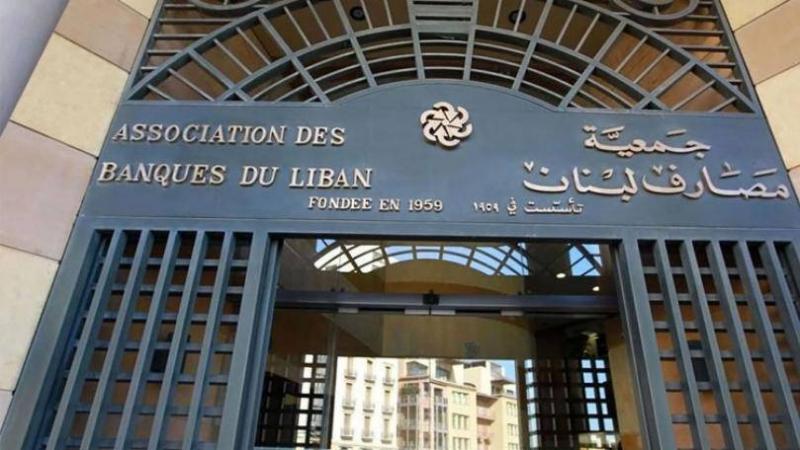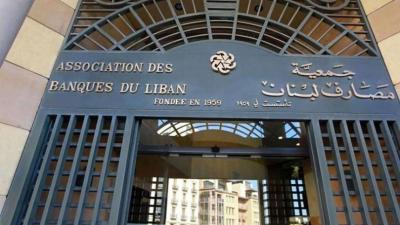The Association of Banks in Lebanon issued the following statement: "The nation is undergoing a crisis classified by international standards as systemic, caused by interlinked factors accumulated over decades to the point where the state is nearly paralyzed. Therefore, the Association of Banks felt it was its duty to openly inform depositors and answer many questions being raised; where are the deposits? Who is responsible? Could banks have resisted the financial and monetary policies? Was it possible to rectify the situation? Why has liquidity dried up? What urgent measures are needed? What fate awaits us?
1) **Where are the deposits in foreign currencies?**
1. His Excellency the Governor of the Central Bank of Lebanon stated on June 21, 2022, that the state withdrew from the Central Bank under laws, 62 billion and 670 million dollars.
2. Opinions vary, but they all point to spending funds on subsidies, maintaining exchange rates, high interest rates, electricity, the state’s import needs, and other matters.
3. What remains currently is limited to what the Central Bank announces as foreign currency reserves, in addition to remaining loans in the market that borrowers are repaying in local currency and remaining liquidity at banks.
2) **Who is responsible?**
First: The state, which approved budgets and spent under laws and squandered, then announced its cessation of payments. It bears the first and largest part of the financial gap and is obligated to compensate for it under the law, especially due to wasteful practices, borrowing, and failure to control smuggling, and also in accordance with Article 113 of the Currency and Credit Law and in fulfillment of its contractual obligations regarding Eurobonds.
Second: The Central Bank, knowing it established monetary policies in alignment with successive governments.
Third: The banks, if we consider for the sake of argument that they are responsible for depositing their surplus liquidity with the Central Bank, have borne and continue to bear consequences that exceed any assumed responsibility in this ongoing systemic crisis. Lebanese banks are ready to contribute to bearing national responsibility for finding a legal and fair solution that the state must guarantee as soon as possible.
3) **Could banks have resisted the financial and monetary policies?**
In short, no. Banks adhered to regulations from the regulatory and supervisory authorities in their investments through:
1. The limits set for foreign currency trading positions and mandatory foreign currency investments.
2. Constraints on investments abroad.
3. The deposits that the Central Bank conditioned to freeze upon performing currency operations for the benefit of depositors.
Additionally, deposits at the Central Bank resulting from dollar clearing operations that occur at the central bank and not through overseas correspondents, as well as all circulars and procedures requiring banks to deposit with the Central Bank.
Banks are not decision-makers and have attempted to raise their voices to seek a change in course, not to mention what the then-President of the Association of Banks faced when he sounded the alarm and was pursued for informing Lebanese citizens and decision-makers of the dangers of continuing the adopted approach. For decision-makers to deny responsibility and portray it as if those who failed to confront them are responsible for their actions is a distortion of facts.
4) **Was it possible to rectify the situation and restore a large part of the deposits despite the crisis?**
Yes, banks insisted on the necessity of issuing a capital control law from the first day of the crisis. It is noteworthy that when the crisis broke out, the Central Bank had reserves of approximately 33 billion dollars, and loans in foreign currencies approached 40 billion dollars, while Lebanese banks enjoyed fairly good liquidity. Today, the Central Bank’s reserves have dropped to around 10 billion dollars due to policies supporting imports and the Lebanese pound, and loans have decreased to about 12 billion dollars after being repaid in local currency, with liquidity dried up at banks. Had the state taken necessary measures from day one, we would not have reached this point. If the Capital Control Law had been enacted, the gap during the crisis would not have increased by about 35 billion dollars, with direct responsibility resting on the state and its institutions.
5) **Why has liquidity in pounds dried up?**
It is well known that banks do not print the pound and are ready to provide depositors with all the cash supplied by the Central Bank. Thus, knocking on the doors of banks is futile as long as the reservoir and faucet are located elsewhere.
6) **Did the state put banks in opposition to depositors?**
The comments and positions vary, but the truth remains one; the public sector wasted private sector funds. The state and its institutions squandered depositors' money and shareholders' capital in banks. The most dangerous action by the public sector was to cast its problems onto the private sector and reach into its savings. Now the state attempts to distance itself and position itself as a judge between depositors and banks.
It is clear that uniting efforts to demand that the public sector return the deposits is essential. To achieve this goal, the Association of Banks calls for an open discussion between depositors and banks to demand the return of what the state squandered from private sector funds.
Dear depositors,
In light of the factors mentioned above which are beyond the banks’ control, principles and values have been turned upside down, leading people to believe, unjustly, that banks are responsible for the collapse of the situation. Attacks on employees and customers present at branches have been repeated.
1. Banks are not responsible for the waste; it is the state authorities that spent your money and delayed approving a recovery plan and the necessary legislation to ensure justice for all depositors.
2. The state has succeeded in placing banks in opposition to depositors while it is the primary responsible party for waste and delay.
3. Most of the funds of major shareholders in banks are not cash deposits but rather investments in the banks' capital, which at the onset of the crisis exceeded twenty billion dollars; what remains of it now? Note that despite everything, banks increased their capital during the crisis.
4. The ratio of profits distributed from bank capitals to bank shareholders since 2013 until now is much lower than the level of interest paid on deposits during that period.
The Association added in its statement: "The banking and financial situation has reached a point where temporary solutions are no longer effective; it has become urgent to:
1. The Lebanese state must honestly inform depositors about the reasons for waste and the underlying causes of its prevention or cessation.
2. Approve a comprehensive recovery plan after negotiating with the International Monetary Fund.
3. Approve all the necessary legislation and reforms, foremost among them the capital control law, to preserve what remains of hard currency reserves, not for the banks' sake but primarily for the benefit of depositors, including a fair framework for addressing the fate of deposits. What fate awaits us if the state delays necessary remedies?
If the current situation persists:
1. The IMF will announce the impossibility of continuing negotiations with the Lebanese state.
2. The foreign currency reserves at the Central Bank will deplete in the foreseeable future.
3. The state will be unable to secure any purchases from abroad, rendering Lebanon incapable of providing the basic necessities of living such as electricity, water, medicine, communications, etc.
4. Hope for recovering deposits will diminish.
5. The currency collapse will exceed the rates known in Lebanon during the 1980s, and traders will replace cash counting machines with scales for money, with examples known and visible worldwide.
Therefore, we urge the state to assume its responsibilities immediately and listen to all concerned parties, especially the Association of Banks and depositors, to find appropriate and feasible solutions to deal with the ongoing systemic crisis in the country and its dangerous repercussions that have affected everyone."




